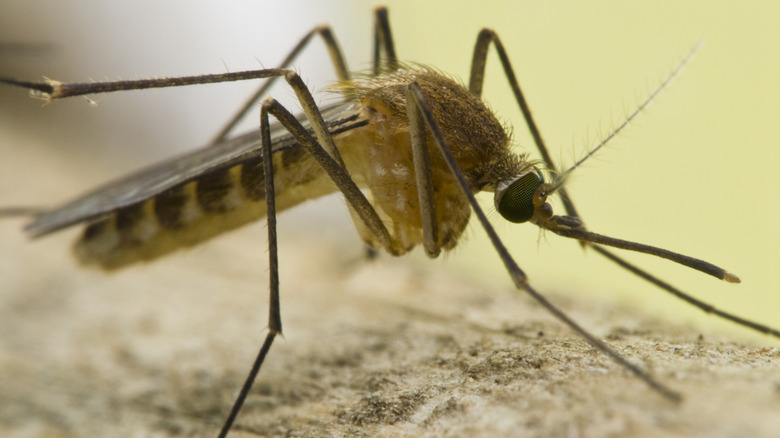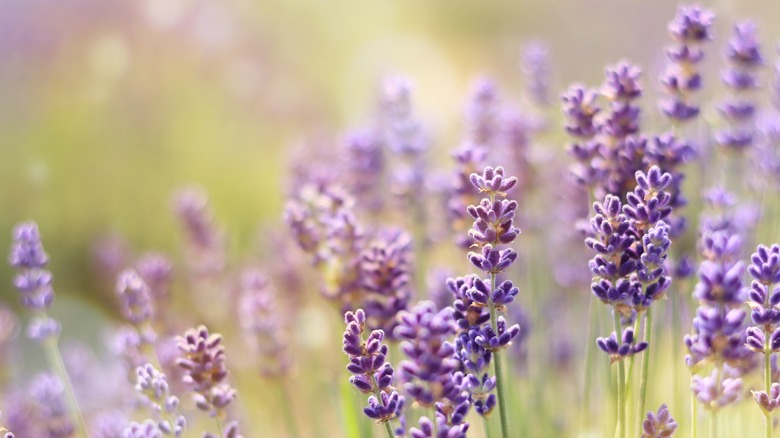This Popular Tree Could Be Attracting Mosquitoes And Other Pests To Your Home
Are you in the habit of dousing yourself with bug spray every time you go outside? Do you feel like mosquitoes are a pest that you simply have to learn to live with? There are about 200 mosquito species in the United States, so it's not uncommon to see them when spending time outside. However, your landscaping choices can have a bigger impact on the mosquito population in your yard than you might realize.
In addition to making other mistakes that attract mosquitoes to your yard, growing pine trees can have a negative effect as well. Pine trees can actually attract mosquitoes and make the problem in your yard worse than it has to be. Surprisingly, it's not the distinctive pine scent that brings mosquitoes to the yard — it's the amount of shade and cover that the tree provides. Pine trees provide dark areas with great shelter while also remaining damp and humid by blocking the sun. They can keep the ground moist as well. Pine needles can mulch the ground, making it ideal for mosquitoes. These trees can also attract other pests as well, including ticks due to their low-hanging branches and roaches due to the mulching the pine needles provide.
Whether you have a pine tree already or you're thinking about growing one, understand the pros and cons. Carefully consider its effect on the mosquito population in your yard. You may want to take some additional measures to ensure they won't cause a problem.
Preventing mosquito and pest problems when growing pine trees
One of the ways to minimize mosquito problems when growing a pine tree is to simply choose a smaller variety. Dwarf pine trees can be a great choice if you want to avoid mosquito issues since they're shorter at 3 to 15 feet. They won't produce as much humidity and moisture, won't block the sun as much, and won't lead to as much ground cover. It's also possible to plant other pest-repellent fauna very close to these trees if needed.
If you want to avoid mosquitoes and other pests in the area surrounding a pine tree, you should also be sure to keep things nice and tidy. Yard debris and the added ground moisture can attract mosquitoes and other unwanted guests. Remove branches and clear up any pine needles and debris that fall to the ground to prevent this. It's also a good idea to consider using other methods for repelling mosquitoes as well such as running fans, lighting citronella candles, or using other household mosquito repellants.
Carefully consider plant and tree choices in your yard
In addition to taking other steps to reduce the mosquito population around your home, you may want to start growing some mosquito repellent plants and shrubs. Planting these close to pine trees can make a positive impact and reduce the damage that pine trees could cause. Some great plants to consider growing in the fight against mosquitoes include lavender, catnip, rosemary, marigolds, lemon balm, and citronella.
On the other hand, be aware that planting certain trees alongside your pine trees can make the problem worse. A variety of plants can attract mosquitoes and other pests, so you'll want to avoid growing them if possible. To prevent mosquitoes, some of the main plants to avoid include water lilies, water lettuce, water hyacinths, papyrus, and taro. As a general rule, growing any plants that produce nectar, are particularly moist and damp, or offer significant amounts of shade can be counterproductive when trying to reduce the mosquito population in your yard.


